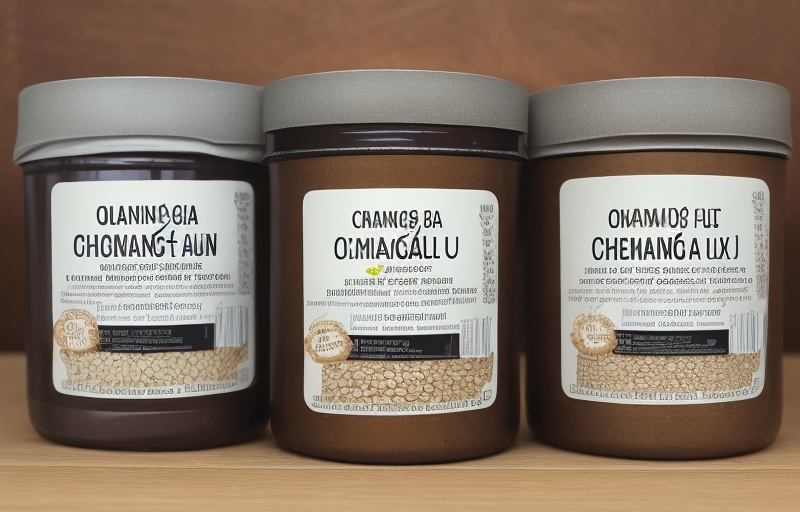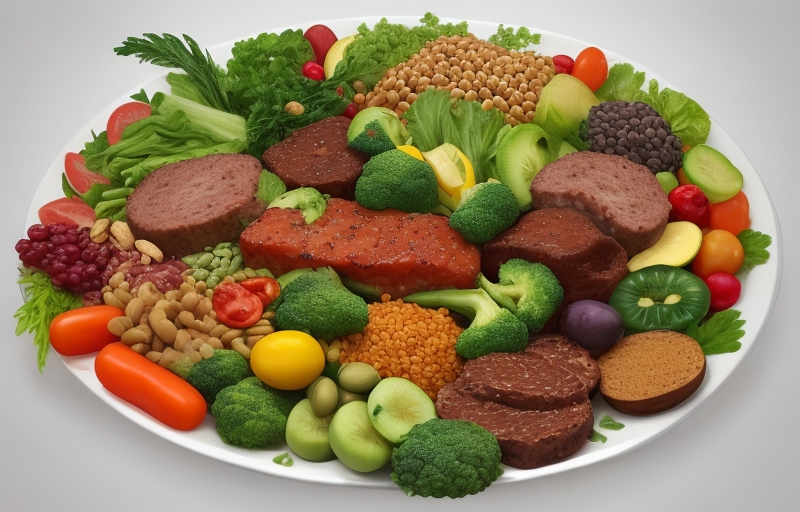Discover the key ingredients in plant-based dog food and learn how to use them effectively for your canine companion’s health. Explore FAQs on transitioning, nutrition, and supplementation for a balanced and thriving plant-based diet. Consult our comprehensive guide for expert insights and recommendations.
Introduction:
As more pet owners embrace plant-based lifestyles, the demand for plant-based dog food has seen a significant rise. The transition to a plant-based diet for dogs requires careful consideration of essential nutrients to ensure their overall health and well-being. In this article, we will explore the key ingredients in plant-based dog food and provide insights on how to use them effectively to meet the nutritional needs of your furry friend.
Key Ingredients in Plant-Based Dog Food:
Protein Sources:

Lentils: Rich in protein and fiber, lentils provide essential amino acids for muscle development.
Chickpeas: High in protein, chickpeas offer a valuable source of energy and support digestive health.
Quinoa: A complete protein source, quinoa contains all essential amino acids necessary for canine nutrition.
Whole Grains:

Brown Rice: A digestible source of carbohydrates, brown rice provides energy and supports gastrointestinal health.
Oats: High in fiber, oats aid in digestion and help regulate blood sugar levels in dogs.
Barley: Rich in vitamins and minerals, barley contributes to a well-balanced diet.
Healthy Fats:

Flaxseed: Packed with omega-3 fatty acids, flaxseed promotes a healthy coat, skin, and supports cardiovascular health.
Coconut Oil: A source of medium-chain triglycerides (MCTs), coconut oil provides a readily available energy source for dogs.
Sunflower Oil: Contains omega-6 fatty acids, supporting skin health and maintaining a shiny coat.
Vegetables:

Sweet Potatoes: High in fiber and vitamins, sweet potatoes contribute to digestive health and provide essential nutrients.
Carrots: A source of beta-carotene, carrots support eye health and provide a crunchy texture in dog food.
Spinach: Rich in iron and antioxidants, spinach enhances overall immunity and contributes to optimal health.
Fruits:

Blueberries: Packed with antioxidants, blueberries contribute to cognitive health and support the immune system.
Apples: A good source of vitamins and minerals, apples provide a natural sweetness and aid in dental health.
Bananas: High in potassium, bananas offer a nutritious treat and contribute to muscle and nerve function.
Utilizing Plant-Based Dog Food Effectively:

Consultation with Veterinarian:
- Before transitioning to a plant-based diet, consult with a veterinarian to ensure it aligns with your dog’s health needs.
Balanced Formulas:
- Choose commercially available plant-based dog food formulas that are nutritionally balanced and AAFCO (Association of American Feed Control Officials) approved.
Supplementation:
- Consider supplementing with nutrients like vitamin B12, taurine, and essential fatty acids, which may be lacking in plant-based diets.
Gradual Transition:
- Introduce plant-based dog food gradually to allow your dog’s digestive system to adjust. Monitor for any signs of allergies or sensitivities.
Hydration:
- Ensure your dog has access to fresh water at all times to support digestion and overall well-being.
Conclusion:
A carefully planned plant-based diet can provide the necessary nutrients for your dog’s health and vitality. By incorporating key ingredients like lentils, whole grains, healthy fats, vegetables, and fruits, and by following the recommended guidelines for utilization, you can ensure that your canine companion thrives on a plant-based diet. Always consult with a veterinarian to tailor the diet to your dog’s specific needs and monitor their health closely during the transition.
Read Also: Plant-based Dog Food – The Basics
FAQs:
Can dogs thrive on a plant-based diet?
Yes, dogs can thrive on a plant-based diet if it is nutritionally balanced and meets their specific needs. Consult with a veterinarian before making any dietary changes.
What protein sources are suitable for plant-based dog food?
Lentils, chickpeas, and quinoa are excellent plant-based protein sources for dogs, providing essential amino acids for muscle development.
Do I need to supplement my dog’s plant-based diet?
It is advisable to supplement with nutrients such as vitamin B12, taurine, and essential fatty acids to ensure a well-rounded and balanced diet.
How do I transition my dog to a plant-based diet?
Gradually introduce plant-based dog food into your dog’s diet, monitoring for any signs of allergies or sensitivities. Consult with your veterinarian for personalized guidance.
Are there commercially available plant-based dog food options?
Yes, there are commercially available plant-based dog food formulas that are nutritionally balanced and AAFCO-approved. Look for reputable brands with complete formulations.
